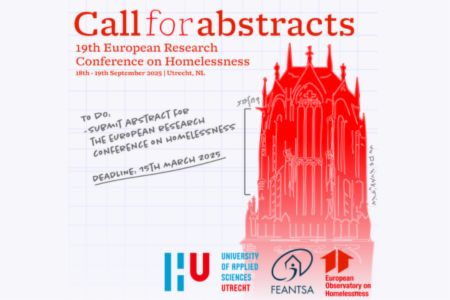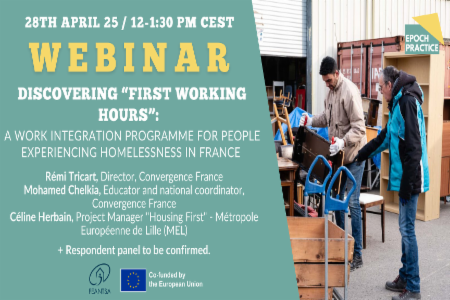
Homeless in Europe Magazine Winter 2023: Beyond Shelter - Europe's dual crisis of homelessness and mental health
Read the magazine here (online PDF)
In a recent Eurobarometer, 62% of EU citizens have expressed that recent world events such as the COVID-19 pandemic, the Russian aggression against Ukraine, the climate crisis, unemployment, and food and energy costs “somewhat” or “greatly” affected their mental health.
Individuals experiencing mental health challenges are particularly vulnerable to three primary factors contributing to homelessness: poverty, social disconnection, and personal vulnerability. Due to their often limited capacity to maintain employment, they can face financial constraints. Delusional thinking may prompt withdrawal from social connections, reducing their support network and leaving them with fewer resources to navigate difficult circumstances. Additionally, mental illness can undermine an individual's resilience and resourcefulness.
These are all reasons why people with mental health problems are over-represented among people experiencing homelessness. However, treatment reaches less than one-third of homeless individuals experiencing mental health issues. Major obstacles to accessing services include service coordination issues and challenges in obtaining health insurance. Another significant hindrance to receiving essential health and social care is often the presence of stigma.
Editorial by Maria José Aldanas, Policy Officer, FEANTSA
Articles:
Autistic people experiencing homelessness: Double invisibility? By Etxane O. Scott, Project and Research Officer, Autism-Europe
Rethinking intergratec approaches to homelessness and mental wellbeing: Solutions and good practices By Caterina Cortese, Coordinator of the fio.PSD Observatory on Homelessness, fio.PSD, Italy and Lucia Fiorillo, Research and Policy Officer, fio.PSD, Italy
Housing First for women: How Westminister's violence against women and girls (VAWG) Housing First project has contributed to improvements in mental health for its service users By Amy Smith, Housing First & Homelessness Programme Manager,
Standing Together Against Domestic Abuse, UK
Addressing the intersection of homelessness and mental health: A call for a psychological approach and comprehesive solutions By Fatima Awil, Policy & Knowledge Officer, Mental Health Europe and Gina Delaney, Development Officer, Mental Health Ireland
The challenge of supporting homeless people with mental health issues: Addressing complex needs through Housing First in Barcelona and its metropolitan area By Eduard Rafel, Director of the Individual Housing Programme,Sant Joan de Déu Serveis Socials Barcelona, Spain
For undocumented migrants, mental health starts with residence papers By Louise Bonneau, Advocacy Officer, PICUM





